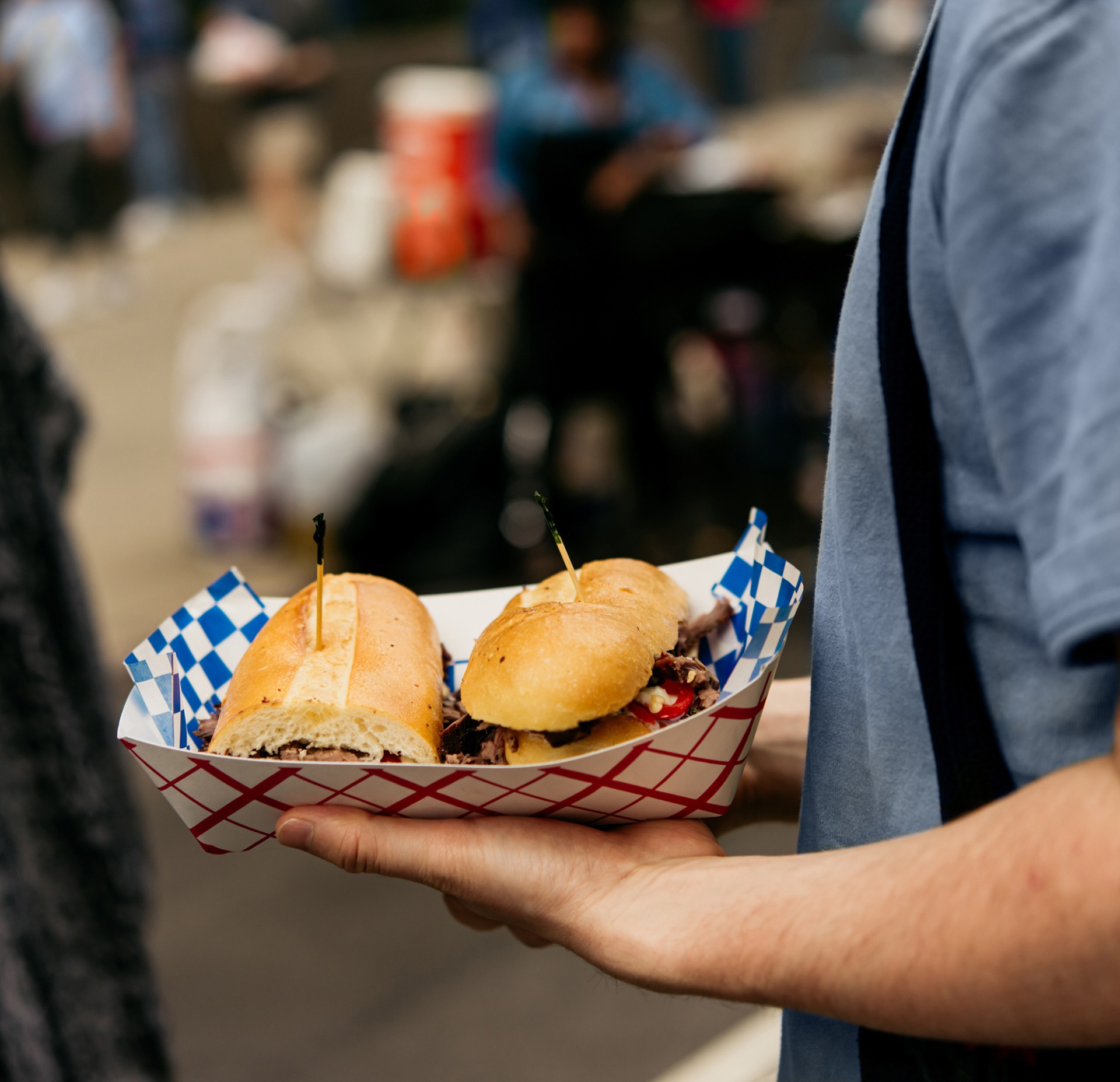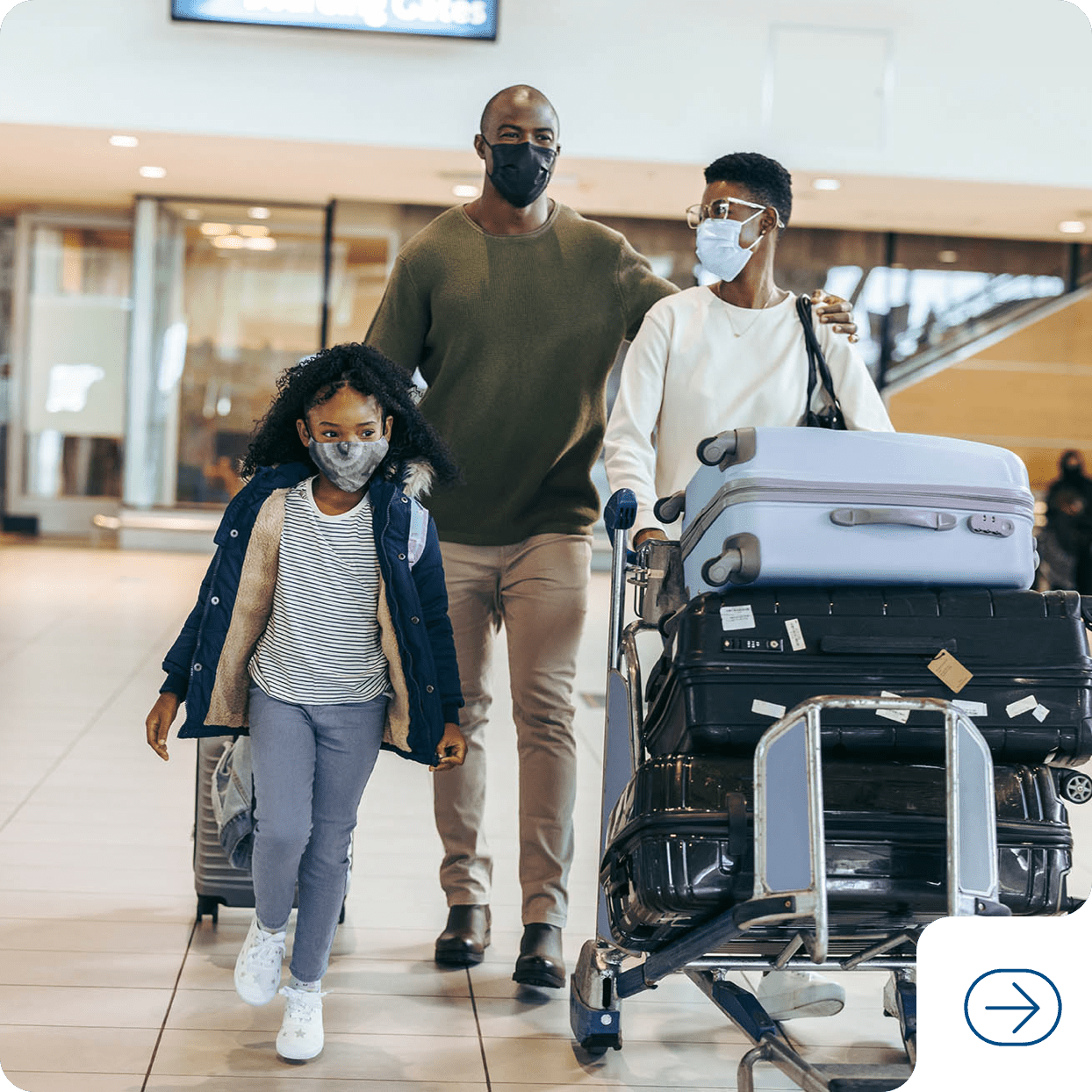The Role of Public Health in Large Events
Holiday 2023

Large-scale events like the recent F1 Las Vegas Grand Prix and the upcoming Super Bowl LVIII are taking the city to a new level. These events bring hundreds of thousands of visitors and residents together to cheer in packed venues or to enjoy food and drinks from dozens of vendors in sprawling locations. The sheer volume of people makes it especially important to protect public health. We talked with some of the experts at the Southern Nevada Health District to find out how they keep our community safe and healthy during Las Vegas’ top-tier events.
Misty Robinson is a Public Health Preparedness Supervisor in the Office of Public Health Preparedness. She has worked at the Health District for over 17 years. Aaron Del Cotto is an Environmental Health Manager in Food Operations and has worked at the Health District for 12 years. Rebecca Topol is an Epidemiology Supervisor in the Office of Informatics and Epidemiology in the Division of Disease Surveillance and Control. She has been with the Health District for almost a year. This interview has been condensed and edited for clarity.
Perspective:
Can you describe what you do at the Health District?
Misty Robinson
Public Health Preparedness Supervisor:
In the Office of Public Health Preparedness, we work with departments in the Health District and our partners in the community to develop, train and exercise preparedness plans for emergencies. Public health is a key consideration in any type of emergency.
Aaron Del Cotto
Environmental Health Manager:
My team is responsible for food safety. We conduct inspections on anything that has food or beverage: something as small as a bar or as large as a buffet on the strip, special events, and everything in between, throughout Clark County. We inspect about 24,000 food establishments each year.
Rebecca Topol
Epidemiology Supervisor:
Epidemiology provides a central source for information and analysis about different illnesses for departments across the Health District. We cover the range of public health topics: we typically help with outbreak investigations, but we also work on areas like chronic and infectious disease, and accidents and injuries.
Perspective:
What does the Health District do to protect public health during a large event like the recent F1 race or the upcoming Super Bowl? What are some of the unique public health concerns related to a large event?
Aaron:

Because of the numbers of people at these events, we look at some larger items first. We have pre-event discussions with event coordinators to make sure we’ll have potable water for the event, enough dumpsters and receptacles and adequate pickup for solid waste, adequate restroom facilities and a plan for how wastewater from hand sinks and portable restrooms is being disposed.
We try to have meetings with food and beverage vendors before the event and set the expectations for what we need to see at an inspection. During the event, we visit every vendor serving food or beverages and do at least one inspection, sometimes more. We make sure food is being stored at the right temperature and it’s safe to consume without cross contamination issues. We also make sure there are adequate hand washing areas with soap and paper towels for food handlers. If we find problems, we will reinspect until the problem is resolved.
Rebecca:
We look closely at data on illness symptoms within the community for anything we can identify before it becomes a bigger problem. We get daily reports from hospitals, urgent care clinics and other health care providers, and we search them for trends like flu symptoms, food poisoning, specific types of injuries, whether there are more visits to hospitals or emergency medical service calls than usual—anything that could be related to a large event that’s going on. For example, if people were suddenly showing up at ERs with gastrointestinal symptoms, we could ask, “Is that something that happened at this event?” But with Aaron’s group doing the inspections, there’s less of a chance of that!
Misty:
We work with law enforcement, public safety agencies and local governments to help coordinate these kinds of large events. We provide the public health perspective and bring forward any potential concerns to the group. We can then use the information we get from our partners to create an operations plan for our Health District teams to make sure we’re all on the same page during the event. We are part of the Multi-Agency Coordination Center (MACC), where we and other agencies monitor the event 24/7 for any public safety concerns. The Health District is responsible for the Emergency Support Function for Public Health and Medical under the National Response Framework; we coordinate resources for public health, health care, the coroner, and behavioral health.
With large crowds, we want to prepare for anything that could cause a medical surge—a sudden increase in people needing medical care that the system might have problems handling. This could be a significant illness outbreak, a bioterrorism attack or a mass casualty event. At the MACC, we have briefings every half hour, so we’re always in meetings keeping an eye on things and we’re ready if anything happens.
Perspective:
What’s something you might do to protect public health at a large event that people might not think about?
Aaron:
I don’t think the public necessarily sees how much pre-planning goes into it. We’re always trying to prepare for the worst, so we work hard to make sure the event goes smoothly. For a couple months before F1, our team was on a weekly call with the fire department, business licensing, code enforcement and water reclamation, with all these community agencies trying to determine what could go wrong and make sure we have everything covered for the event.
Misty:
For F1 and the Super Bowl, I have been participating in monthly meetings with Metro’s special events section, which includes representatives from many different agencies and private businesses, and I also chair a hospital and trauma center subcommittee. That’s where our Emergency Support Function comes in: we talk with hospitals about planning for extra staffing and ensuring their critical infrastructure is prepared for an emergency. We developed special event planning guidelines hospitals can use to prepare for a potential medical surge for any special event, including New Year’s Eve.
Perspective:
How many people from the Health District typically work on a large event like F1 or the Super Bowl?
Misty:
It depends on the event, but for F1, we had more than 40 people across multiple departments assisting in the planning efforts and it will be about the same for Super Bowl.
Perspective:
What is one thing you’d like residents to do, to help protect public health during a large event?
Misty:
If you see something, say something. Be smart about where you’re going. When in large crowds, look for exits, and keep yourself safe first.
Aaron:
With these large events, feedback is really important to us. We have a lot of conversations with partners and operators about what we all want to improve for the next year. So, hearing from the public helps us make our process better, especially with more and more big events like this happening. For example, foodborne illness is extremely underreported, so if someone ate something and didn’t feel well after, let us know. If someone saw something that didn’t look right, let us know.
Perspective:
I thought you were going to say, “wash your hands,” but that’s a great answer, too!
Aaron:
Yes! Wash your hands!
Rebecca:
Right, remember the usual public health advice: wash your hands; stay home if you’re not feeling well; pay attention to your surroundings.
Perspective:
Thanks everyone!
For more information on keeping yourself and your community safe and healthy during large events, check out Four Health and Safety Tips for Mass Gatherings at the Centers for Disease Control and Prevention’s Public Health Matters Blog.



